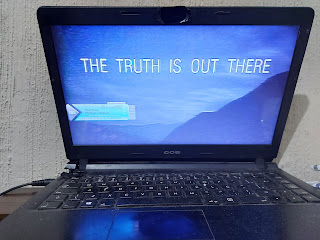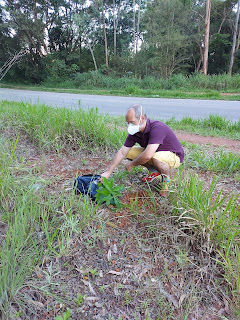Enquanto caminho pela Afonso Pena com Rio de Janeiro, um instrumentista dedilha na entrada de banco.
Me sento na escada. Tiro a máscara. Começo a tomar caldo de cana e comer pasteizinhos.
Me olha. Fica sério. Toca mais um pouco. Interrompe música. Pega o celular. Parece ser um Blackberry, com teclado físico.
Lembro-me daquele que perdi no ônibus. Acho que vinha de São João para BH, com Rai, para o processo seletivo do pós-lit. Naquele tempo meu desespero era sair da Caixa.
Zapeia um pouco. Guarda celular. Me observa. Desliga amplificador e retira cabos. Recolhe moedas e notas. Abre carteira, ostensivamente, conta várias notas de 2, 5, 10, 20. Guarda notas, coloca carteira no bolso. Me soslaia.
Um motoqueiro se aproxima dele:
fica qui mais um tempin?
pôco!
chave tava na motu .
si parecê u donu intregu.
si sai, dexo cum colega li!
valeu!
Um se afasta. Outro começa a colocar material na mochila. Usa prendedor para cordas de violão. Muito lentamente, uns minutos depois, encapa violão. Tira caderno da mochila. Faz anotações em algumas páginas não sequenciais. Se ergue. Me esguelha.
No canto do olho esquerdo, vejo chegar rapaz próximo da moto. Olha ignição: um lado, outro. Tenta forçar para abrir baú.
Perdeu umas chave?
Pensei que tinha dexado no baú!
O instrumentista mostrou chaveiro.
Graças a São Judas!
Sempre ouço você tocando por aqui.
Movimento bom, por aqui, né?
Já te vi. Já foi mélhó! Muita concorrença.
Tá osso mess!
Mi passa seu cpf...
O do violão olha de través.
Vô enviá um pix prô cê.
Cinquentão tá bão?!
Opa! Belêz dimais!
Se despediram. O entregador agradece novamente. Abre e arruma bagageiro. Sob na moto. Acelera. Dá um tchau. Parte.
O músico levanta-se. Enviesa-me.
Termino de comer pastéis gordurosos e caldo dulcíssimo. Recoloco PFF2.
Parece se preparar para partir!
Ao passar ao meu lado, balbucia algo e escarra forte!
O entregador retorna sem caixa. Olha moto e músico.
Entregô chave pru motoquero?
Sim! Cabô di sai.
Deu graça pra sanjustadeu.
Pediu pra ti agradecê.
Valeu! brigadu!
A motocicleta ruge para fazer nova entrega.
O instrumentista segue, passo ante passo.
Eu me analiso e o obliquo o escarro.
Por VanRes, 23/10/2021 v3.e7.a47 (23/10/2021, 13:30
273° Uma viagem pela cidade
Enquanto caminho pela Afonso Pena com Rio de Janeiro, um instrumentista dedilha violão na entrada de banco.
Logo que me sento na escada para tomar um caldo de cana, ele me olha, toca mais um pouco, mas interrompe música.
Pega o celular, modelo antigo, zapeia um pouco, me olha.
Guarda celular, me olha de soslaio, desliga amplificador e retira cabos. Recolhe moedas e notas da vasilha.
Me olha. Abre carteira, conta várias notas de 2, 5 10, 20. Guarda dinheiro, coloca carteira no bolso.
Um entregador se aproxima:
Vai ficar aqui mais um tempo?.
Um pouco!
A chave estava na ignição daquela moto de entregador do lado da minha.
Se aparecer o dono eu entrego.
Ou quando eu sair deixo com o colega ali!
Valeu!
Coloca
material na mochila e algo para prender as cordas. Lentamente. Uns dois
minutos depois, guarda violão na capa. Tira uma caderno da mocchila.
Anota algo. Já vai partir.
Chega um rapaz próximo da moto, olha para ignição, um lado, outro. Tenta abrir o baú.
Perdeu uma chaves?
Acho que esqueci no baú!.
O instrumentista mostrou a chave.
Graças!
Me passe seu CPF...
Vou enviar um pix para você: r$ 50,. Tá bom?!
Beleza demais!
Se despediram. O entregador partiu. O músico também!
Eu obliquo o escarro.
Por VanRes, 23/10/2021, 13:30














